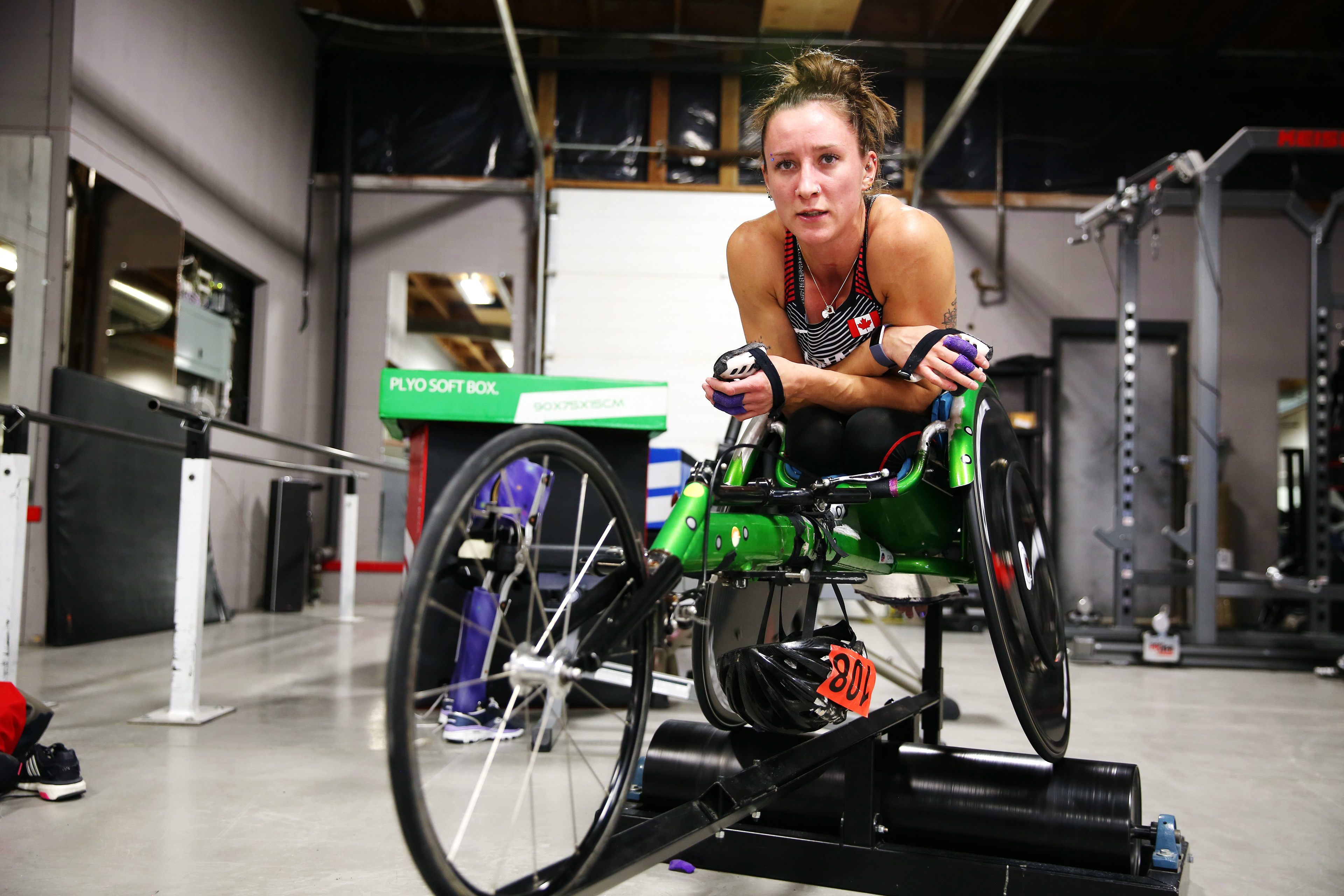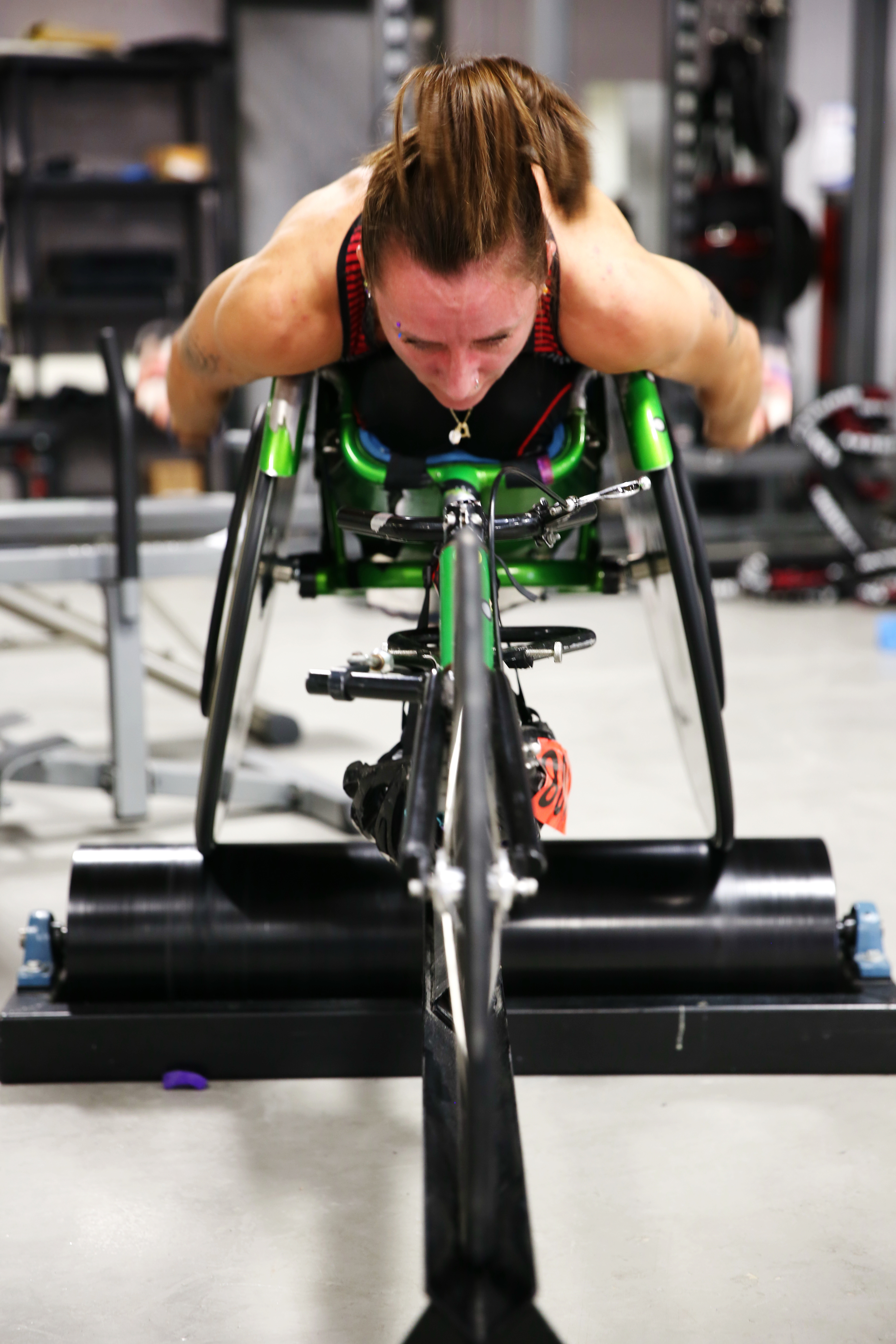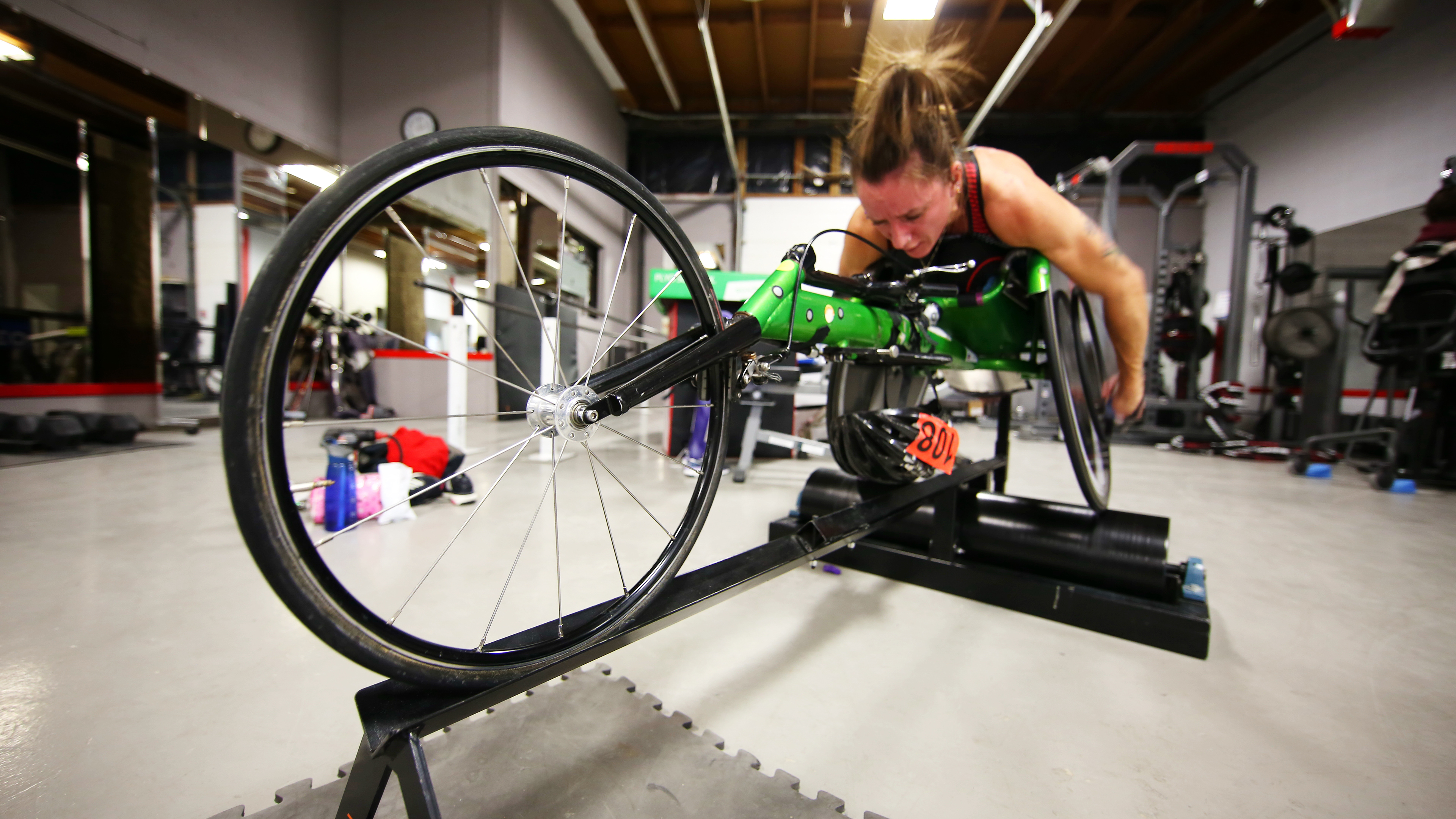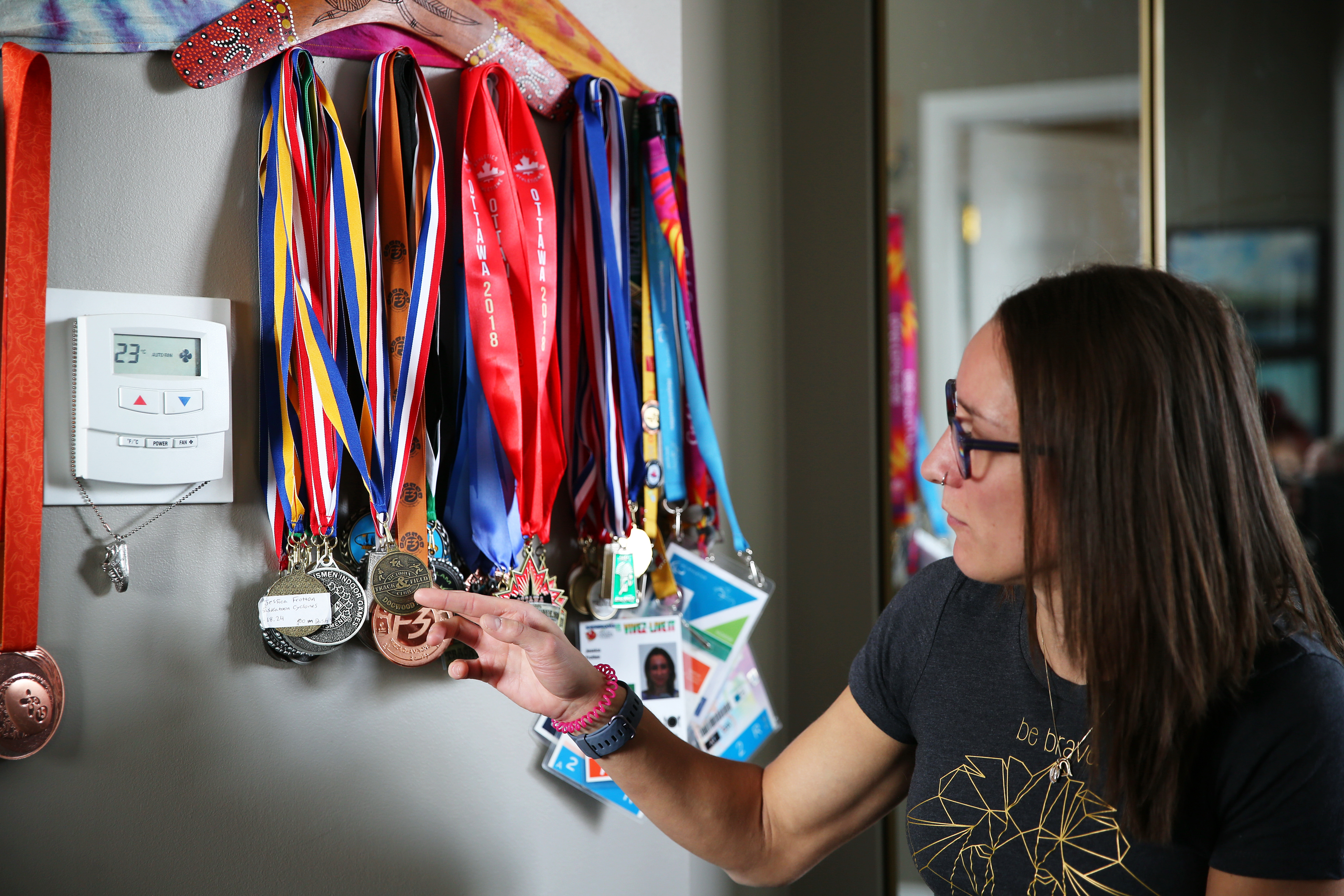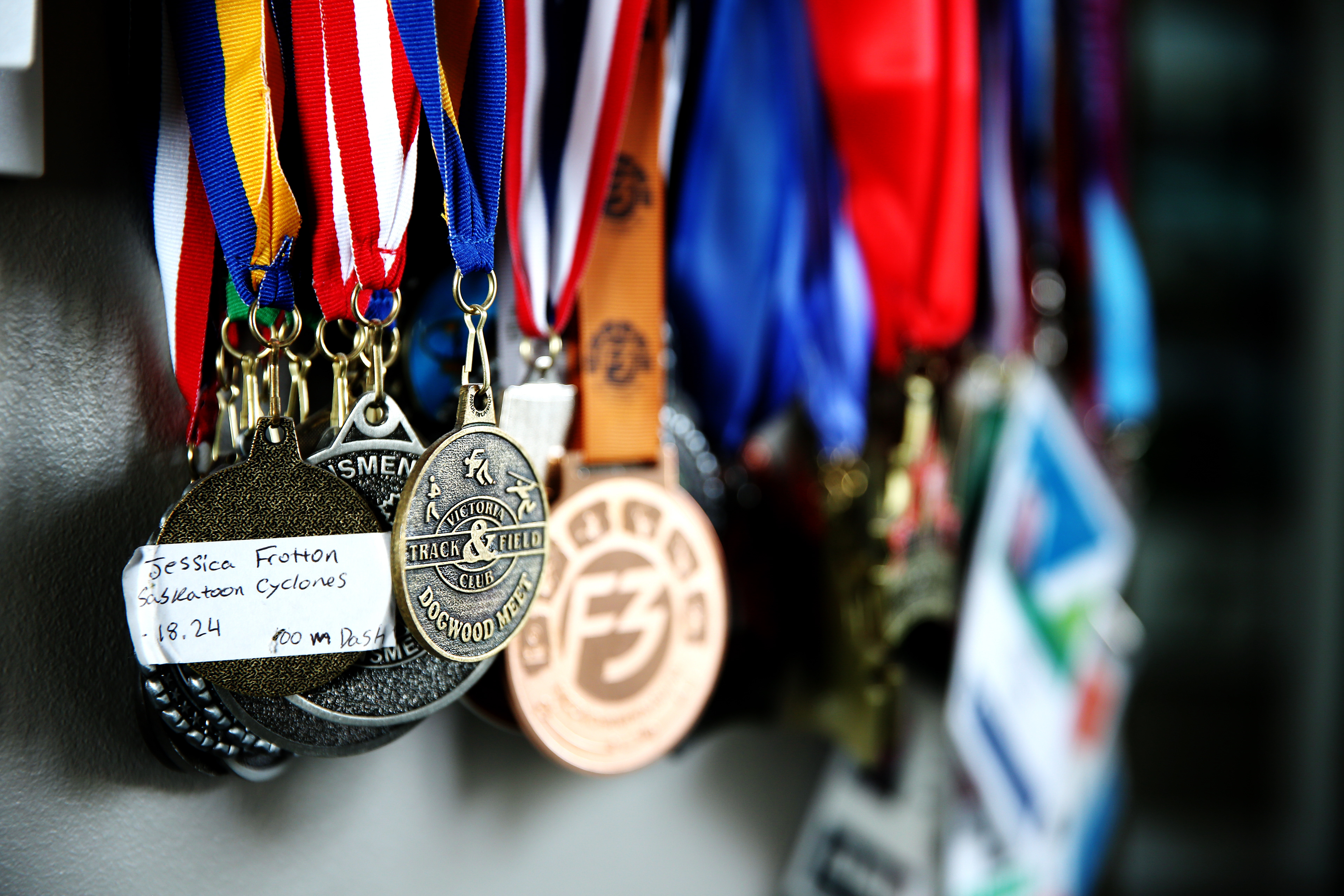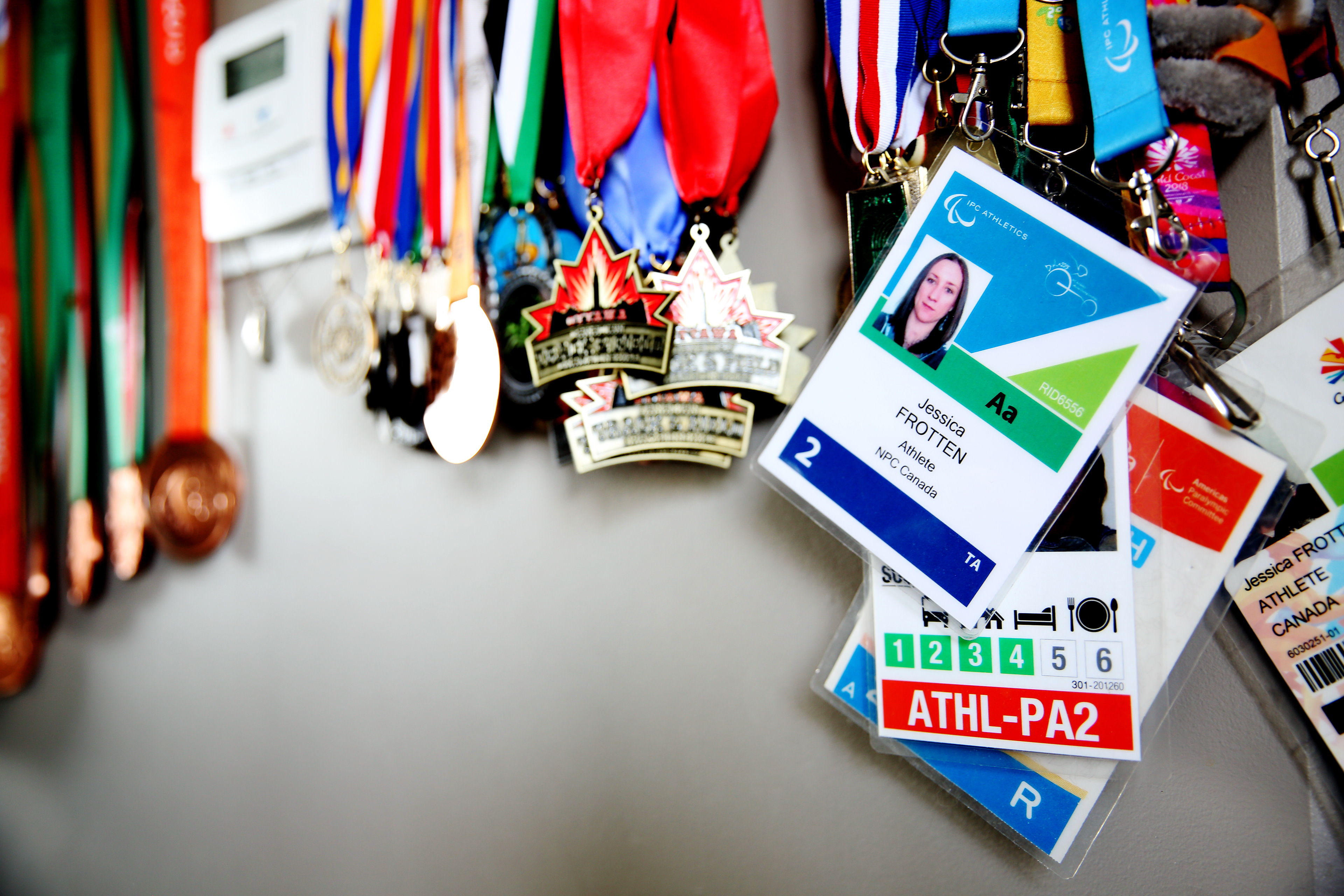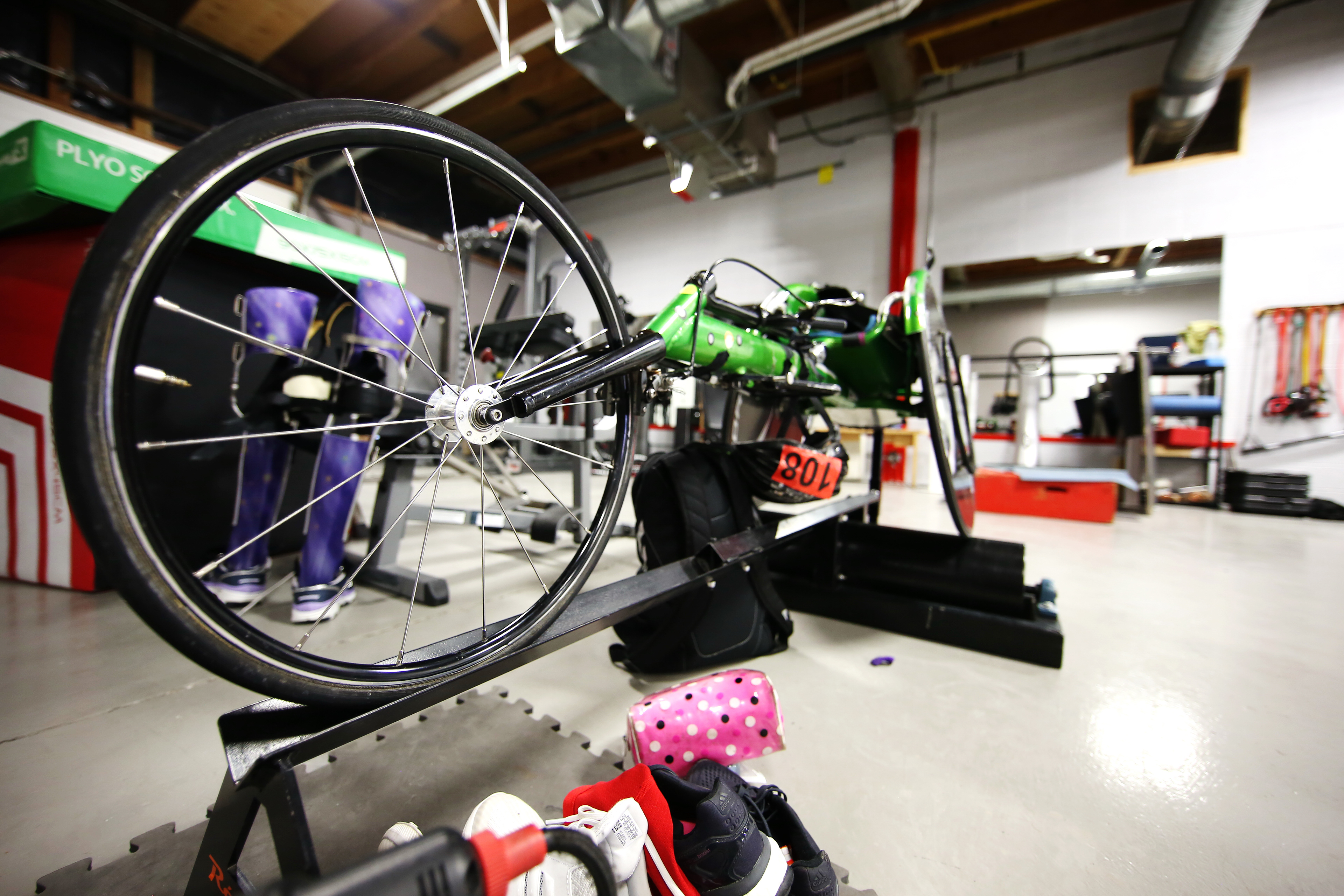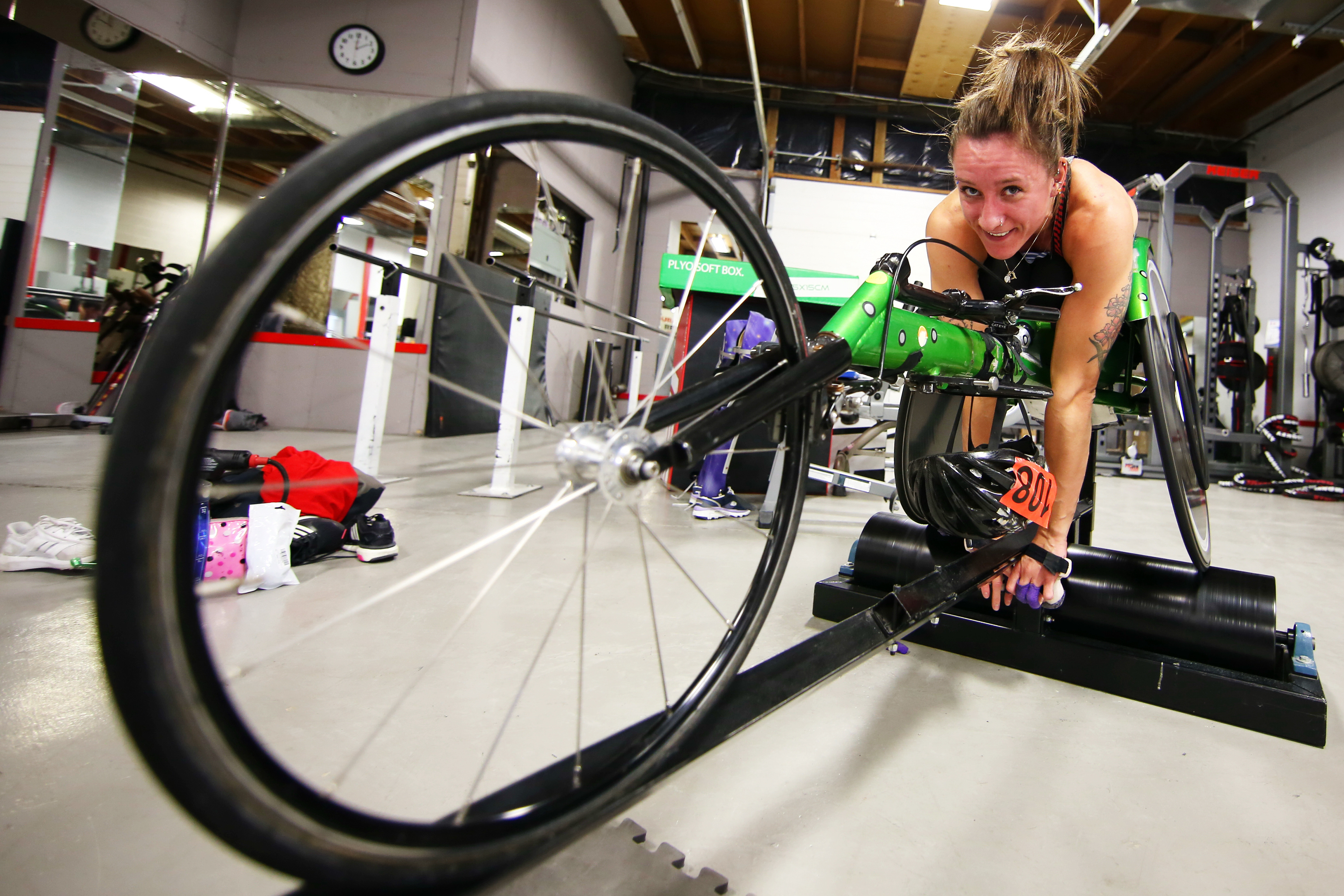
Laying in a hospital bed a decade ago, Jessica Frotten never imagined she would be breaking records. Least of all a national speed record. In high school, she dabbled in basketball for fun but was never competitive.
“I almost didn't quite believe it,” Frotten said with a look of disbelief. She leaned forward in her wheelchair and breathed a little heavier, “because last year was a tough year.”
She was competing in the 400-meter race at the Australian Summer Down Under Racing Competition. Frotten knew she was fast but did not know at the time she won more than bronze.
“The first race, I took like a 10th of a second off the record,” She said. “Then we had another race the following day... and I just smashed it.”
Now the Regina-Yukon athlete is the Canadian national record holder.
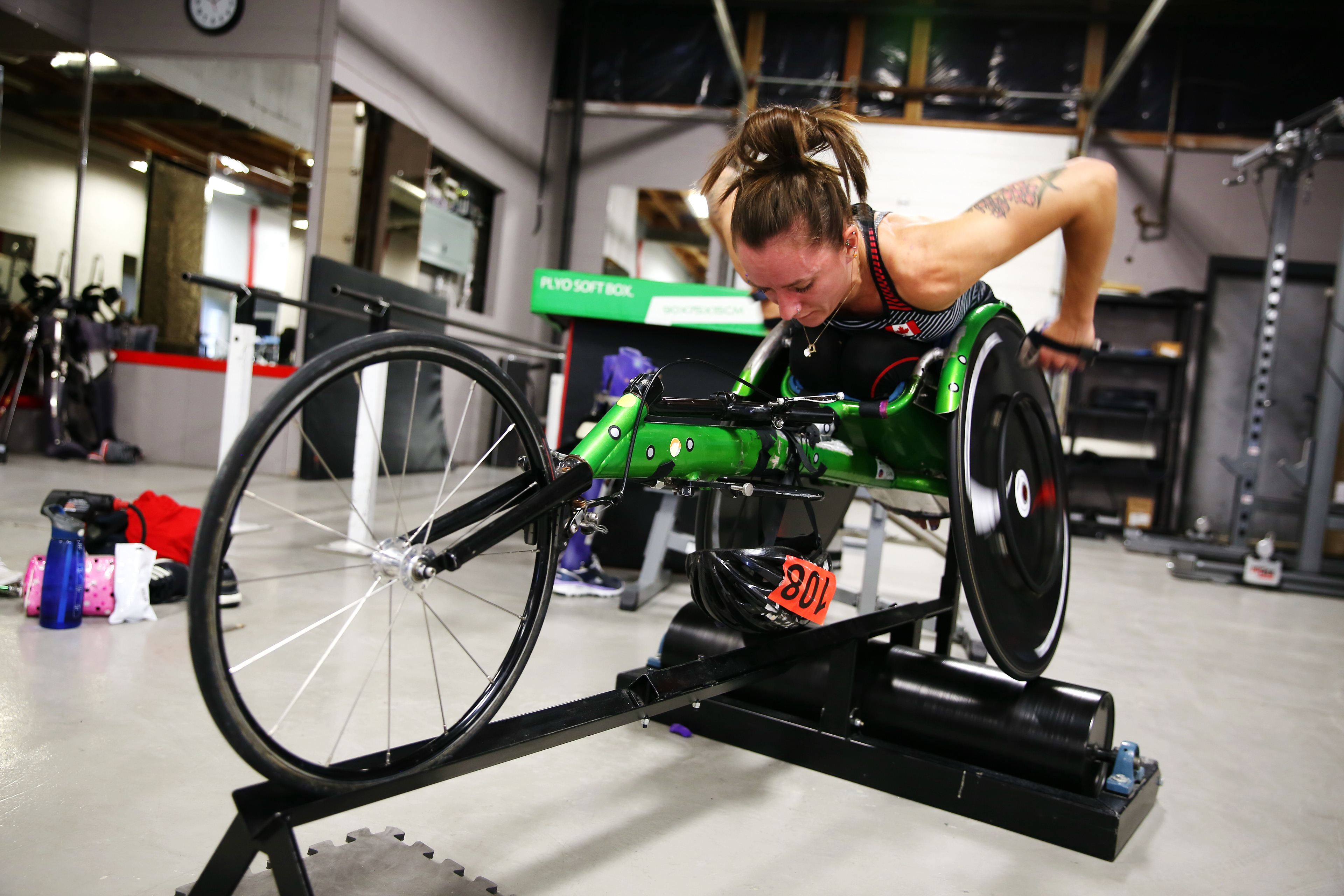
A decade before her record race, Frotten was in a very different place: a hospital in Edmonton.
“I'm from Whitehorse, Yukon,” she said. “It was a single car accident on an icy road on a remote part of the Alaska Highway,” she said.
The driver lost control and the car flipped several times. The roof ripped off and Frotten was thrown across the highway.
“I broke my back and almost all the other bones in my body. My ribs, my feet, my shoulders,” she said. “But the spinal cord injury was really the least of my worries. I had torn the aorta in my heart and collapsed my lungs.”
Frotten was stabilized and taken by medevac air ambulance to a hospital in Edmonton as Whitehorse did not have the resources needed for her. She spent around three months in intensive care.
“They just put me back together, like Humpty Dumpty,” she laughed.
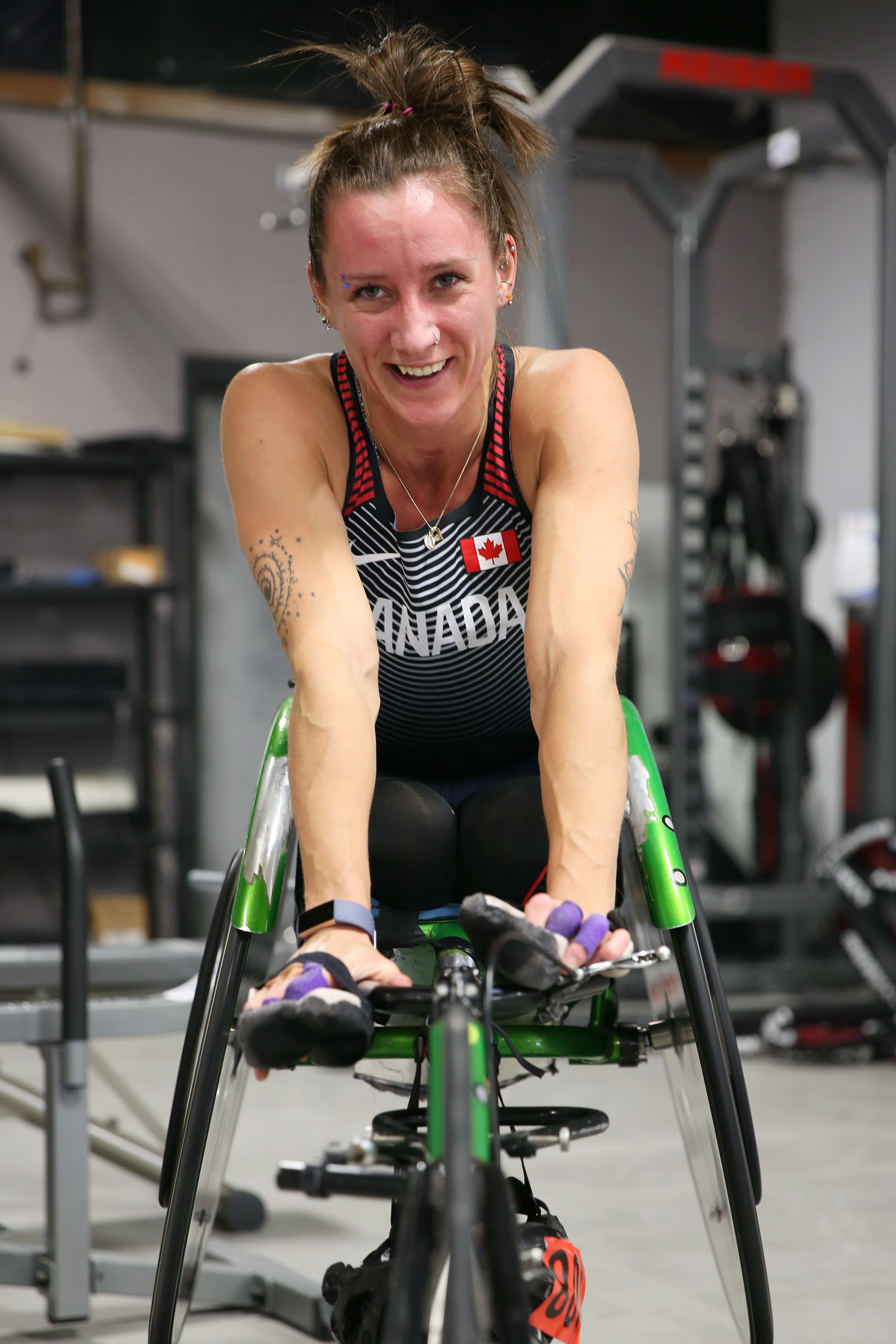
A surgery cut Frotten’s back open to stitch up her heart. She had tubes in her side to prevent her lungs from collapsing and a tracheotomy.
“I had so many wires and stuff that I could hardly write and just looped too on different pain meds,” she said. “It was a good adventure.”
Her family helped her through, she said.
“It was just like a revolving door of aunties and uncles and cousins,” she said.
Frotten’s mom stayed by her side through it all.
“She’s my rock,” Frotten said with a smile.
When her heart was stabilized, Frotten found out about her spine.
“I was told I had an incomplete spinal cord injury and that my chances of walking were pretty slim.” She said the doctors were blunt. “‘You're going to learn to use a wheelchair. And this is your new reality now.”
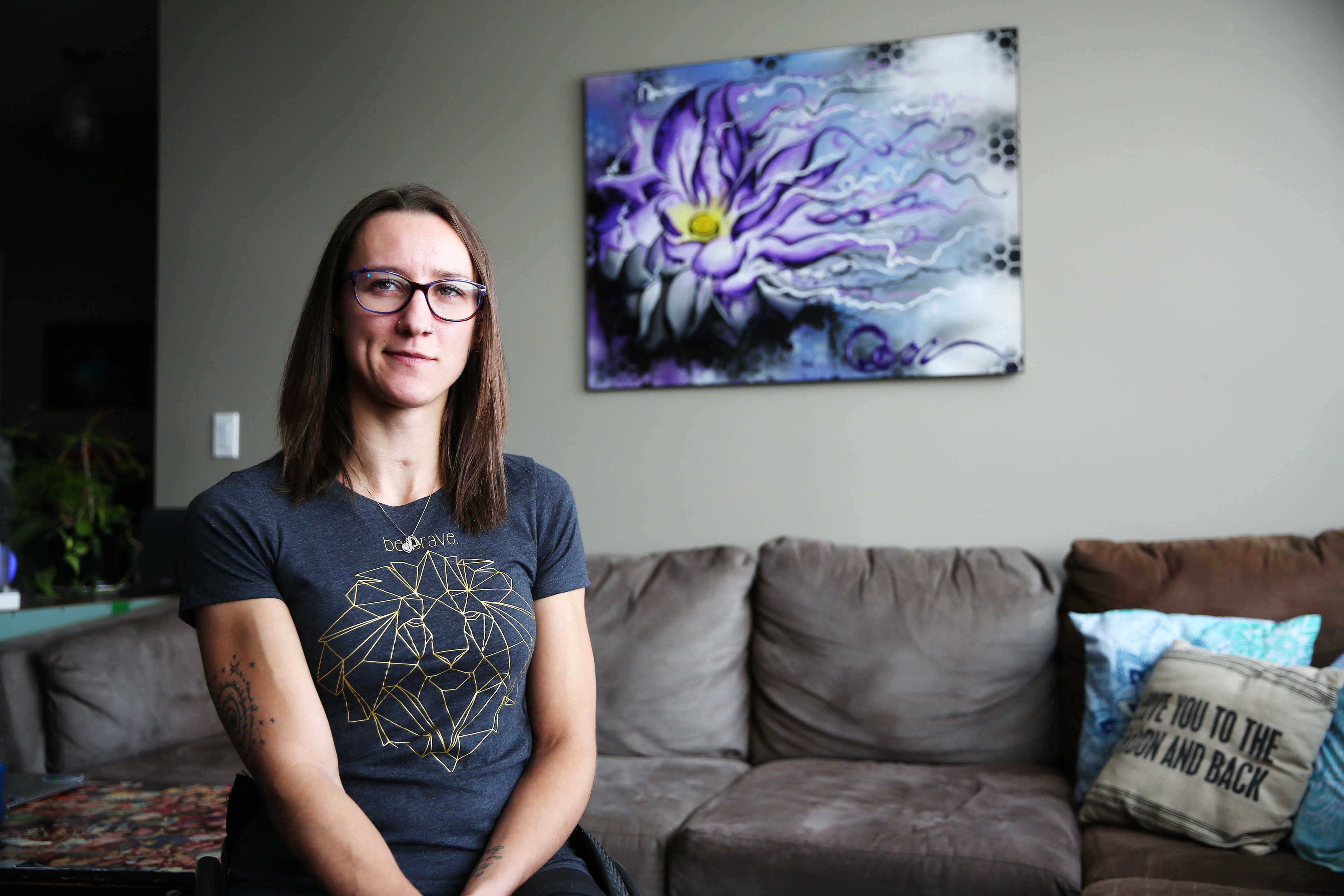
“It was super scary for me,” she said. “But I mean, that support system I have, it's almost impossible to fall when you have so many backing you like that.”
About a year later, Frotten had finished rehab and wanted to do more. Regina was opening the first Canadian spinal cord injury recovery center, First Steps Wellness, so she decided to give it a try. She has been in Regina since.
The recovery center helped her retrain her nervous system, Frotten said. She has more sensation and is stronger than before. First Steps Wellness also took her in as a part of their family. While in Saskatchewan, Frotten also met another athlete named Chris Pearson.
“He was incredible--he did all this amazing stuff,” she said. “He taught me how to drive. And he was my person.”
Pearson was the one who started Frotten in a wheelchair racer.
“I got into my race chair and I completely flipped over backwards,” she laughed. “I was like, ‘I'm not gonna let this guy win.’”
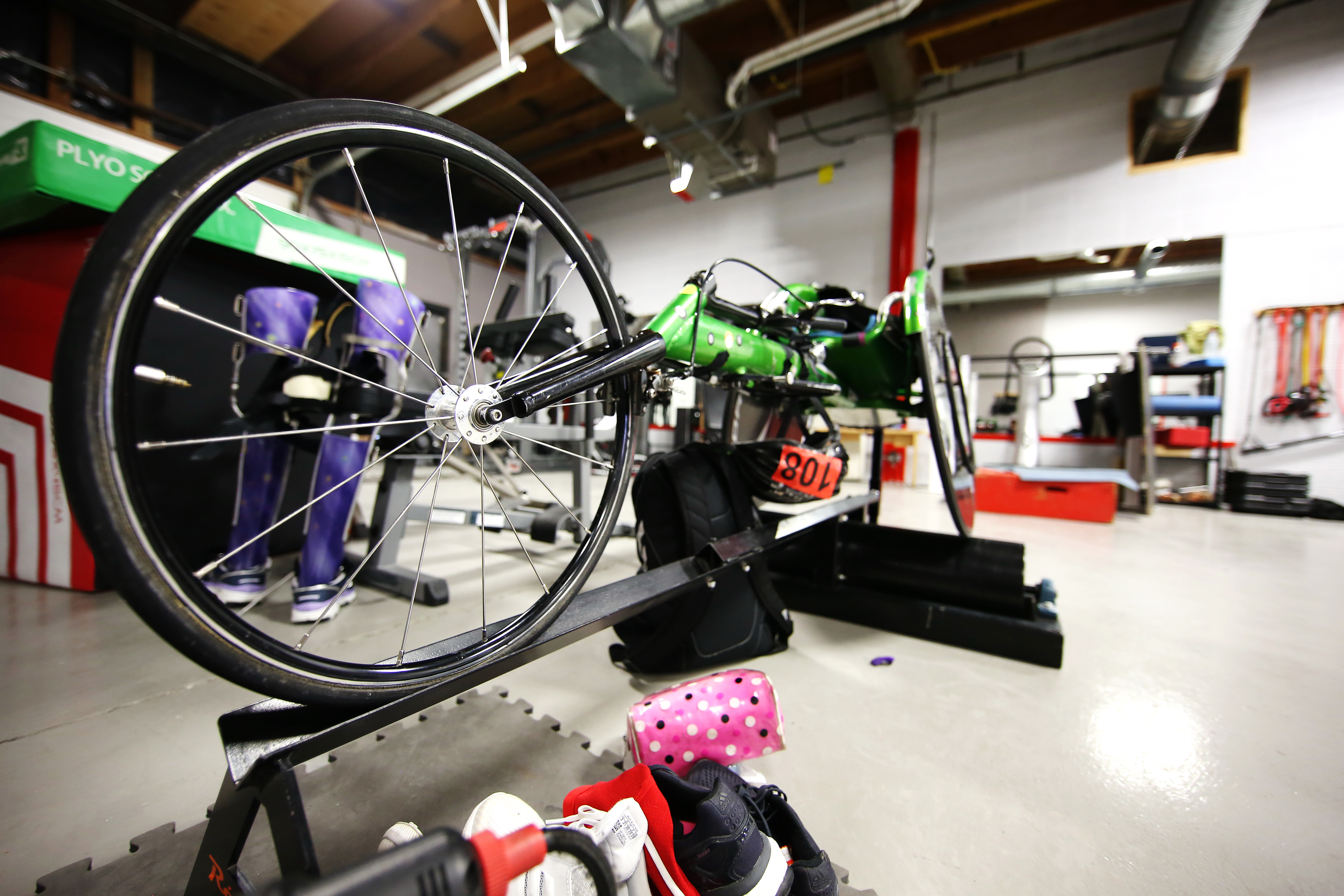
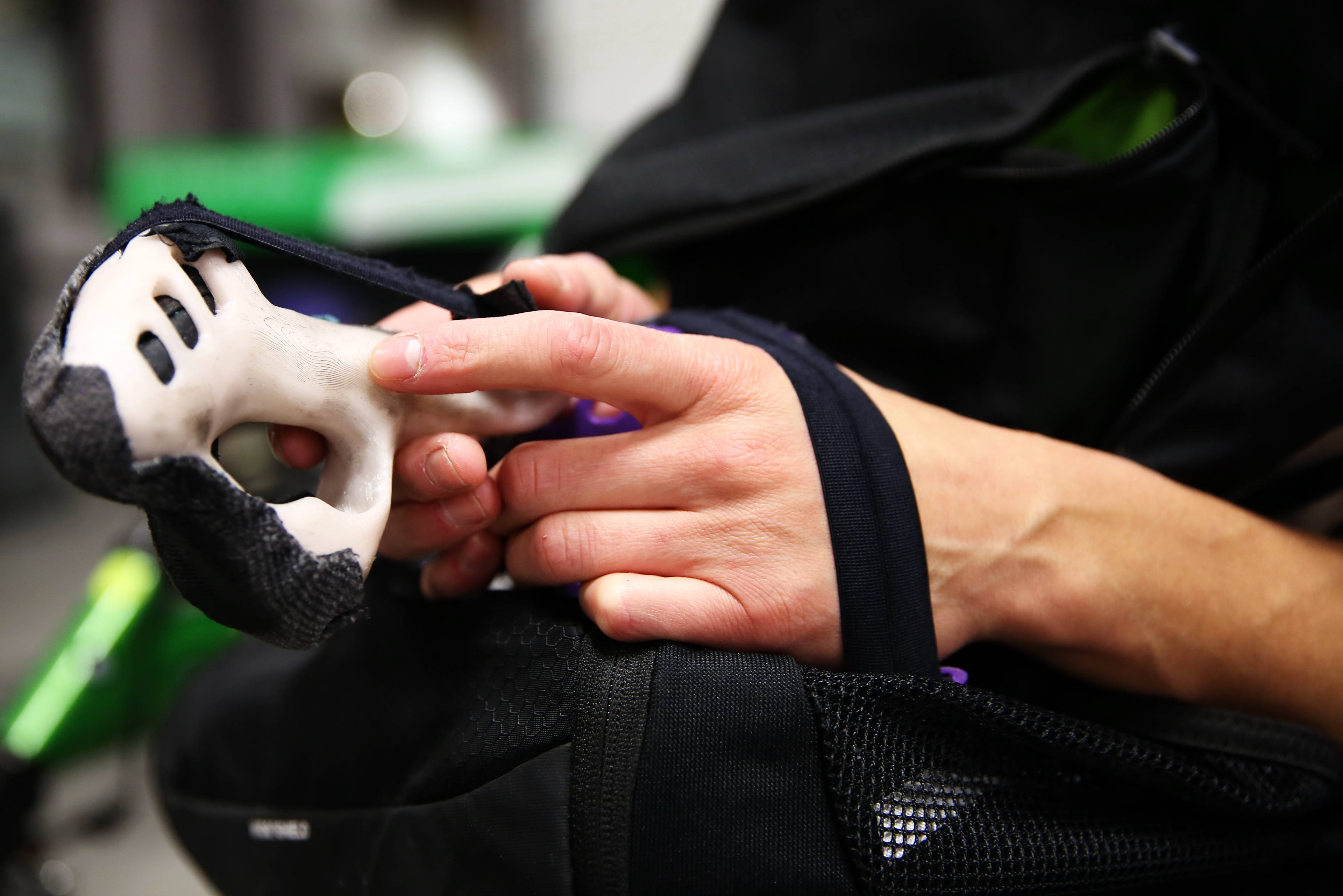
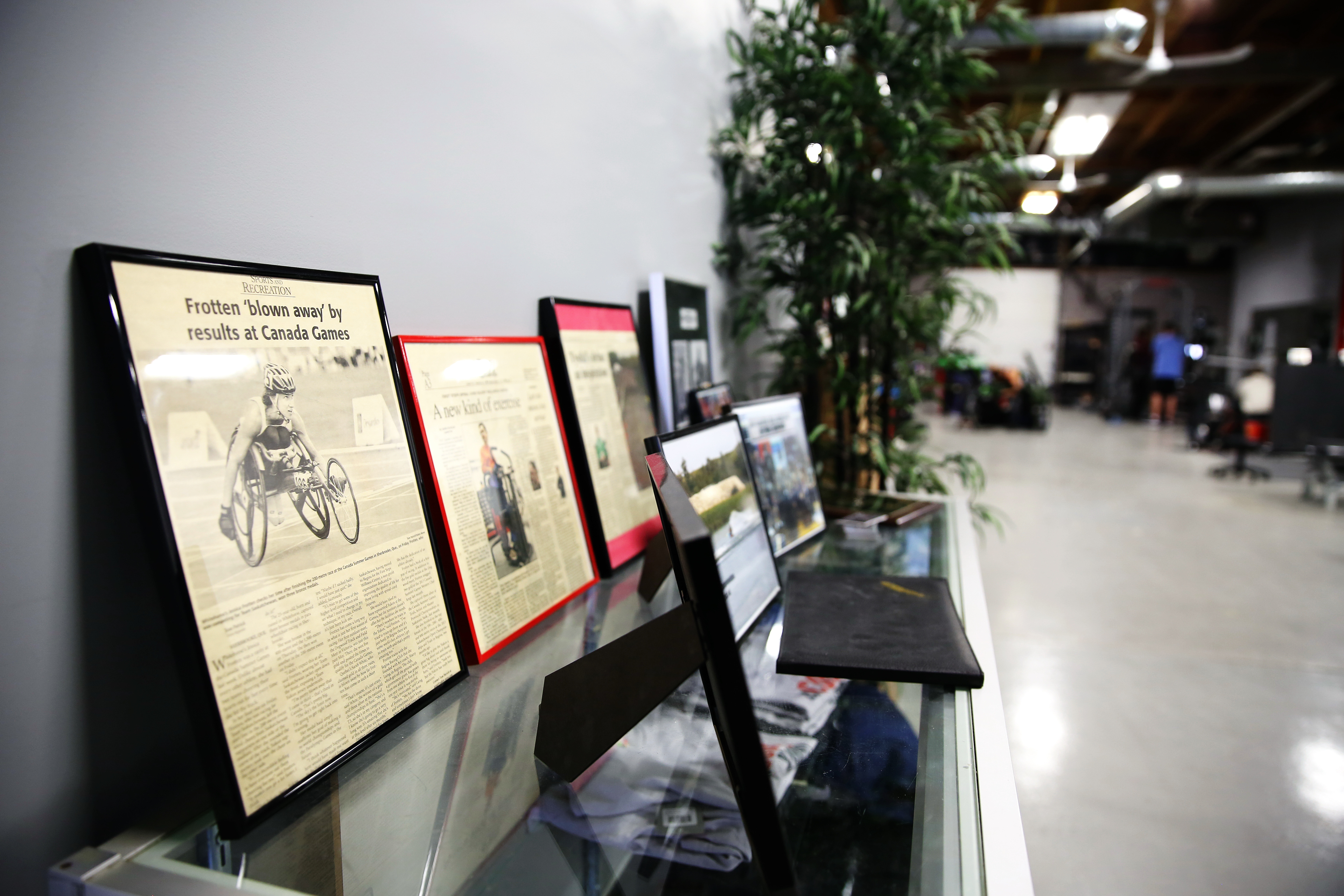
Frotten started racing around 2013. Her first national competition was at the Summer Canada Games that year. She has competed all over internationally. She has a wall of medals and keepsakes in her small apartment in downtown Regina, including a boomerang from Australia.
“I loved the just figuring out little bits to get faster all the time,” she said.
The racer has an aluminum chair and two carbon fibre disk wheels at the back with a smaller single wheel at the front. There is a steering handle at the top for on the road and a compensator for races. The compensation automatically steers her left on the track.
“They're built for speed and not comfort,” she said with a laugh. While demonstrating, Frotten squeezed into the small chair, using her arms to tuck her legs completely beneath her.
Frotten also has specialty 3D printed hard gloves she covered in suede for traction. She is currently the only competitive racer in the province, but hopes for more people to join in the future.
“Wheelchair sports has hopefully some development things happening,” she said. “There's some people that could be really great and enjoy it.”
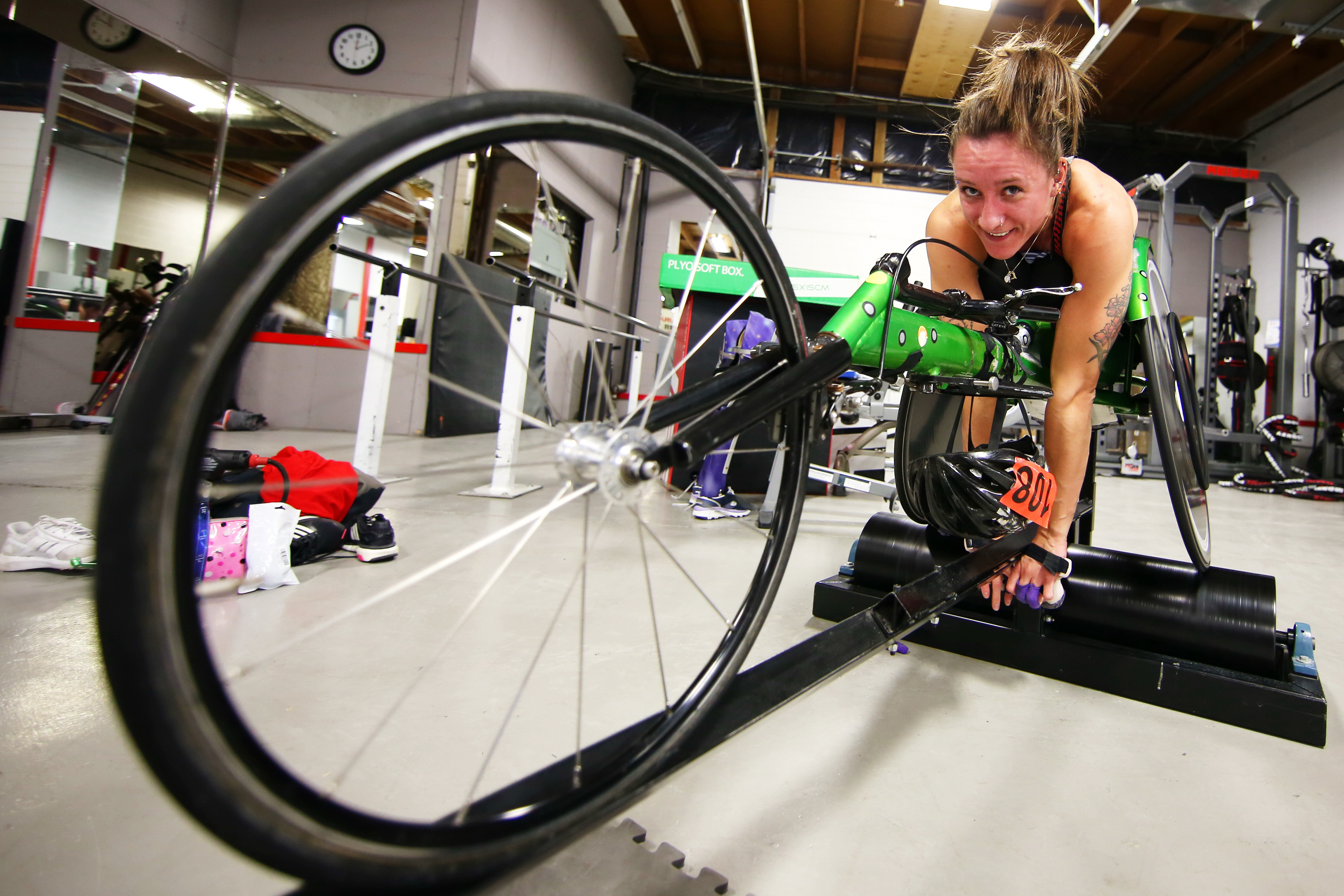
Working with people in wheelchairs is also her day job. When she is not racing, Frotten works for a medical supplies company called Ergo Medical Supplies.
Although, not every track has gone smoothly. Frotten said one incident stood out at the 2018 Commonwealth Games on the Gold Coast of Australia.
She had one 1500 meter race and was going around a curve. A British competitor racing inside the track of her missed the compensator to steer and crashed into Frotten. She was knocked on her back, badly bruised and had to be helped off the track.
“I was hurt, my body was hurt, my pride was hurt. I just put all this work into this race and it was gone,” she said.
Frotten had to pull out of the games.
“That was really tough. It took me, I think I'm probably still dealing with it,” she said. “Just getting over that you can crash and you will crash and it's just part of racing.”
“It will probably affect me forever.”
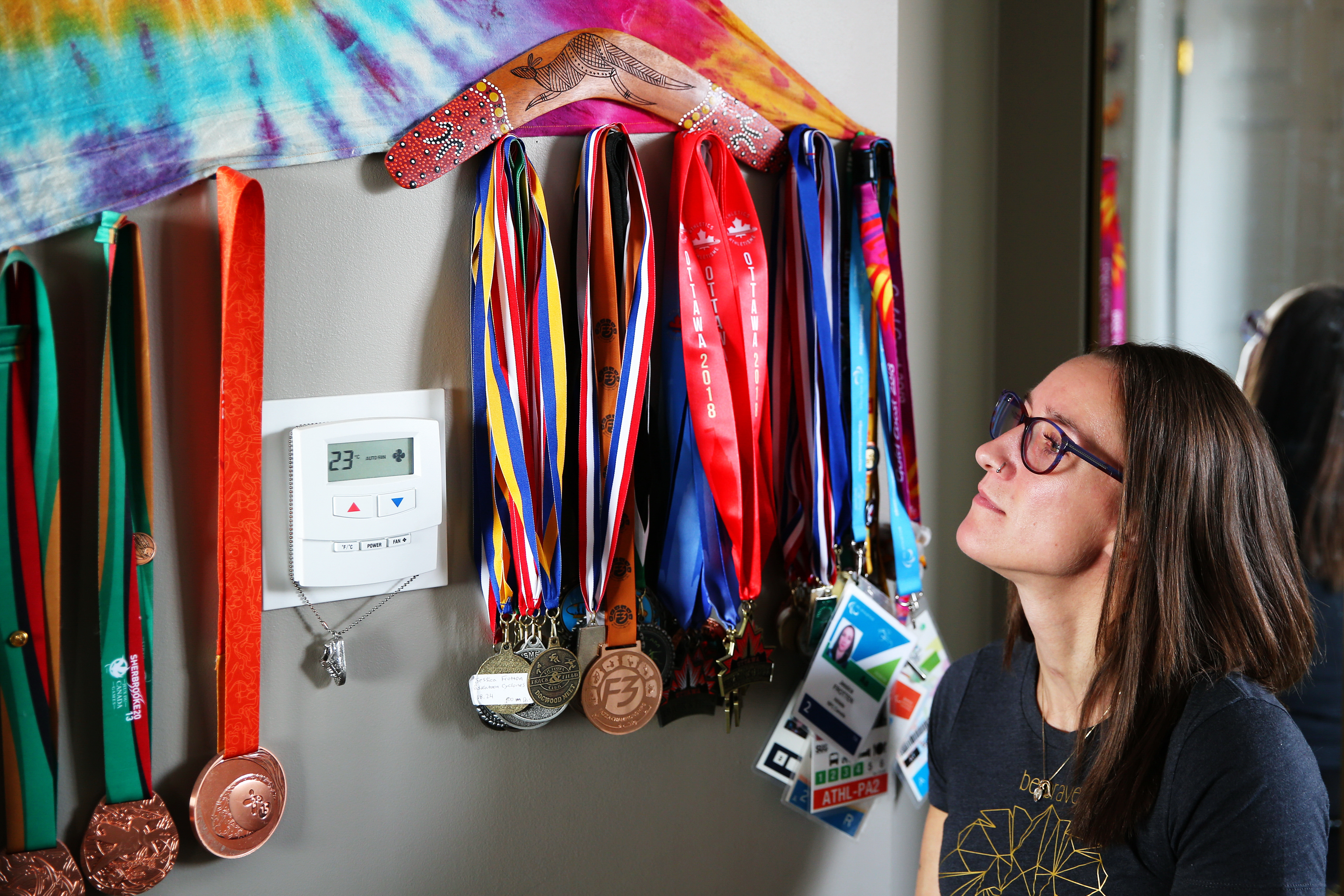
After the crash in 2018, that is what made the record-breaking race in 2019 so special.
“With the whole Commonwealth Games stuff — I never felt really at the top of my game.”
She has got her game back now and her sights are locked on the 2020 Tokyo Olympics. [Since writing for the 2019 Crow Magazine, the 2020 Toyko Olympics have been postponed due to the coronavirus pandemic.]
“Coming in this year, feeling strong. And starting off with a Canadian record,” she said. “It's going to be a great season.”
